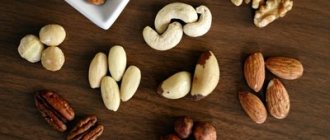Home Proper nutrition
24 Sep 2021, 10:00 Anna 1 711 No
Most often, bananas are eaten for breakfast. This fruit does not require cooking and is convenient to eat on the go. Of course, banana is very beneficial for the body, as it contains a large amount of useful substances. But, according to nutritionists, this fruit is still harmful to eat on an empty stomach.
Scientists are sure that at first glance, a banana is indeed an ideal option for breakfast, as it helps saturate the body with energy. But if you study this issue in more detail, it will become clear that bananas cannot be consumed as an independent food.
Benefits and harms of the product
The sweet pulp of banana is considered an excellent source of unique antioxidants, the formulas of which have not yet been recreated in the laboratory. It is also rich in maltose, sucrose, glucose and fructose. This makes it the strongest natural energy drink. In addition to everything, it contains a sufficient amount of calories. This means that eating a banana for breakfast, the benefits of which are due to its vitamin and mineral composition, will allow you to feel full for a long time.

This product contains a lot of potassium, which is necessary for the proper functioning of the nervous system, controlling heart rate, maintaining an acceptable level of blood pressure and preventing muscle spasms. The sodium it contains helps remove excess fluid and prevents the development of swelling. Together with potassium, it regulates metabolic processes and normalizes the acid-base balance. It contains no fat or cholesterol at all, but contains enough vitamin C. Therefore, eating a banana for breakfast, the benefits and harms of which have already been well studied by experts, significantly increases the absorption of iron and destroys free radicals that destroy viable cells. The dietary fiber it contains gently cleanses the body and normalizes the functioning of the gastrointestinal tract. Also, these fruits are rich in phosphorus, iron, manganese, calcium and vitamin B6.
Despite all of the above beneficial properties, these gifts from the tropics have a number of contraindications. According to recent studies, eating a sweet fruit on an empty stomach is bad for your health and can cause harm. It is recommended to eat a banana for breakfast only after eating other foods. Otherwise, it may cause a sharp rise in blood sugar levels. To prevent this from happening, it is advisable to supplement it with nuts, cereals or fermented milk products.
What are the health benefits of banana?
Each organism is unique in its metabolism and digestion. The article provides general characteristics of the product without taking into account the individual characteristics of a particular person. Bananas can be recommended for regular consumption for a number of reasons:
- Thanks to their composition, they strengthen the immune system - they are useful to use as food during seasonal infections and colds. Regular consumption increases performance, physical and mental endurance.
- Helps quickly replenish the body's energy needs. This product should definitely be included in the menu of a person experiencing heavy physical activity.
- They contain substances that improve the functioning of the nervous system, increase attention, memory and reaction, and are natural antidepressants. Therefore, they may be useful for people prone to stress, depression, insomnia and nightmares.
- They contain a lot of fiber, pectin and dietary fiber, but do not irritate the mucous membrane of the stomach and intestines. Normalize the functioning of the gastrointestinal tract - useful for both constipation and diarrhea. Helps cleanse the intestines and prevent the appearance of parasites. They are natural probiotics.
- Increases the level of hemoglobin in the blood.
- Helps normalize blood pressure, reduce the risk of hypertensive crises, heart attacks and strokes.
- Helps balance hormonal levels. Increases reproductive function and potency in men. Women experience significant relief during PMS.
Important! The beneficial properties of the product can be significantly reduced during transportation and storage, as well as due to errors made during harvesting. When choosing bananas, you need to pay attention to the following signs:
- large black spots on the peel are a sign of rot;
- the gray color of the peel indicates that the product has been frozen;
- ripe bananas have a smooth peel and a round cross-section; unripe bananas are characterized by some ribbing in the peel; unripe fruits are more harmful than beneficial.
Calories and nutritional value
Reference. The calorie content of bananas can vary greatly depending on the variety and ripeness. On average, 100 g of banana without peel contains 89 kcal. In dried fruits, the calorie content can be 5 times higher. Per 100 g of fresh banana pulp, on average, there are 0.3 g of fat, 23 g of carbohydrates, 1.1 g of protein, 74 g of water and 0 g of cholesterol.
Due to its high calorie content, the product cannot be called dietary. But this is not a reason to exclude it from the menu. Bananas contain a whole range of vitamins and biologically active substances.
Calories and excess weight? Read about the benefits of bananas for women, there is also information about weight loss











